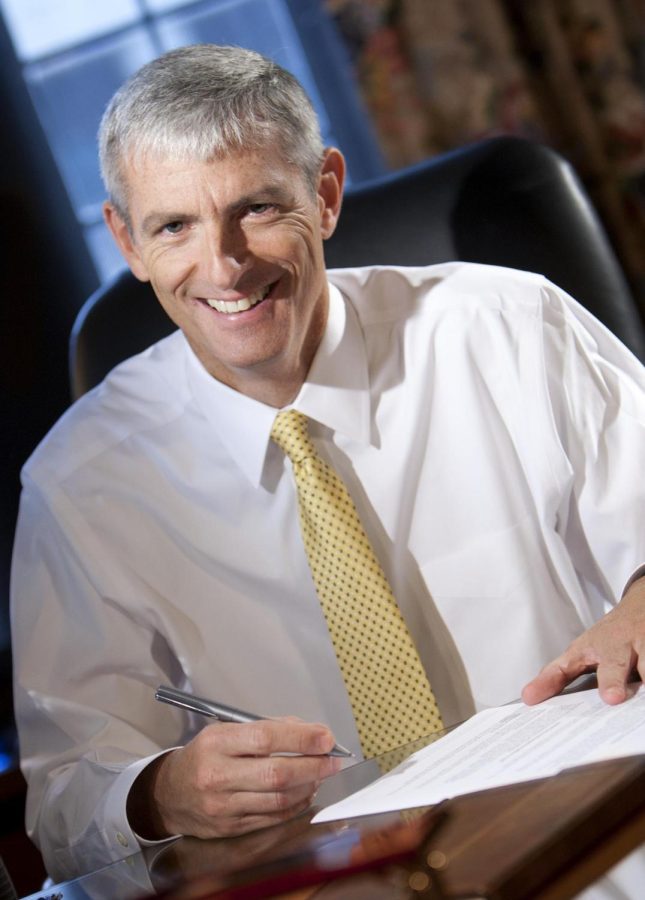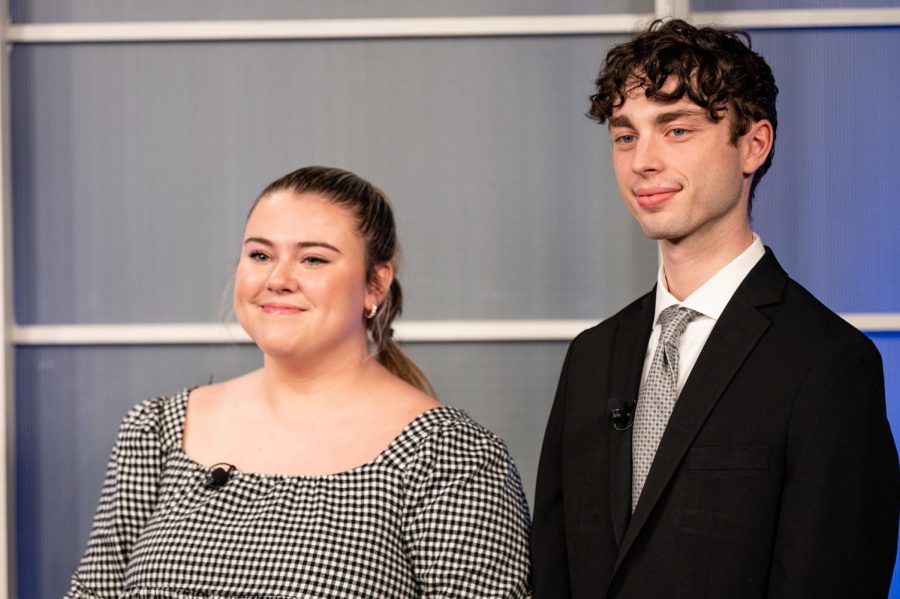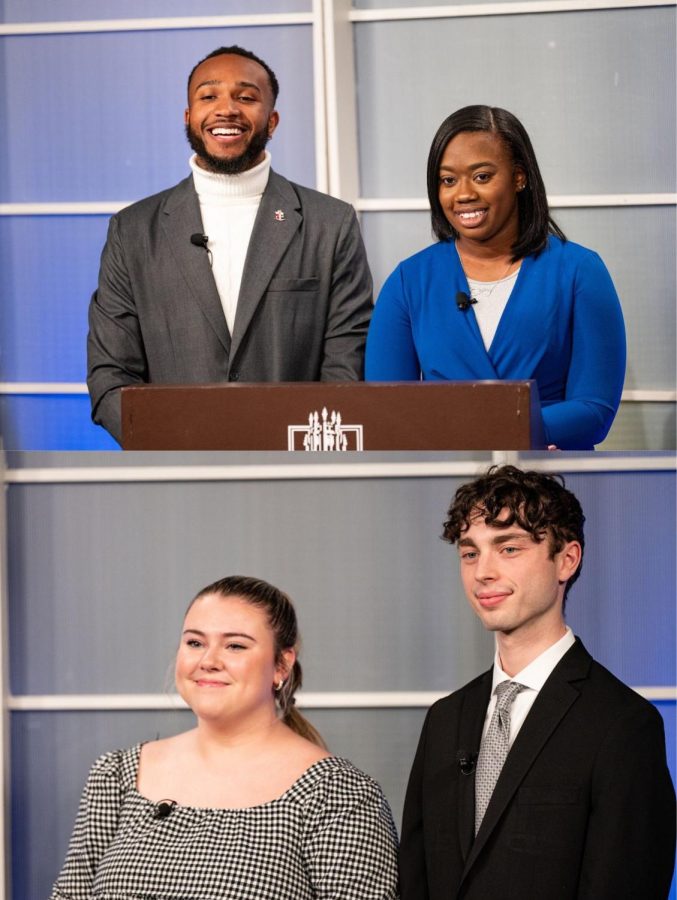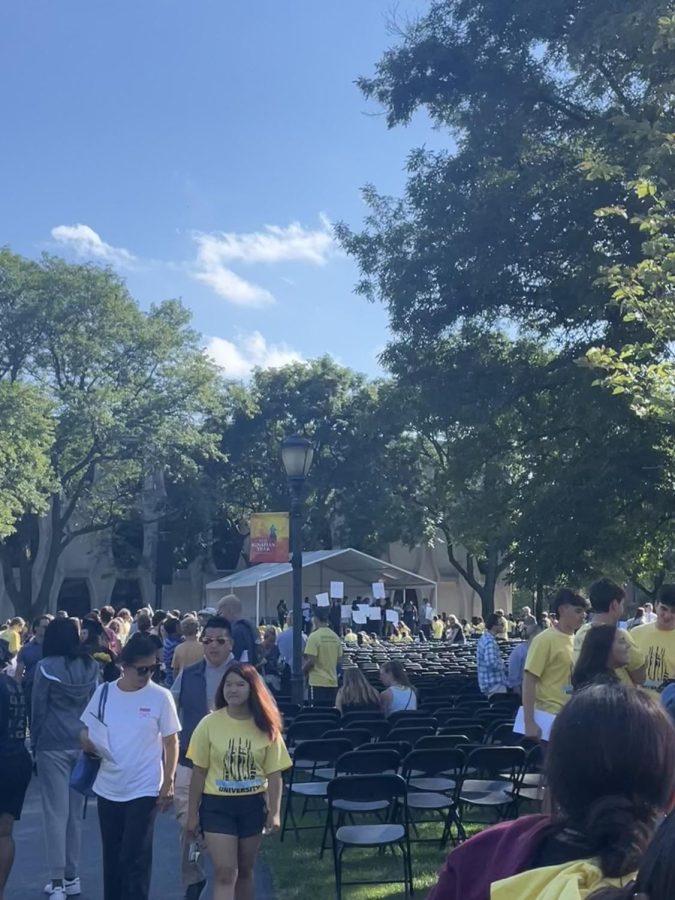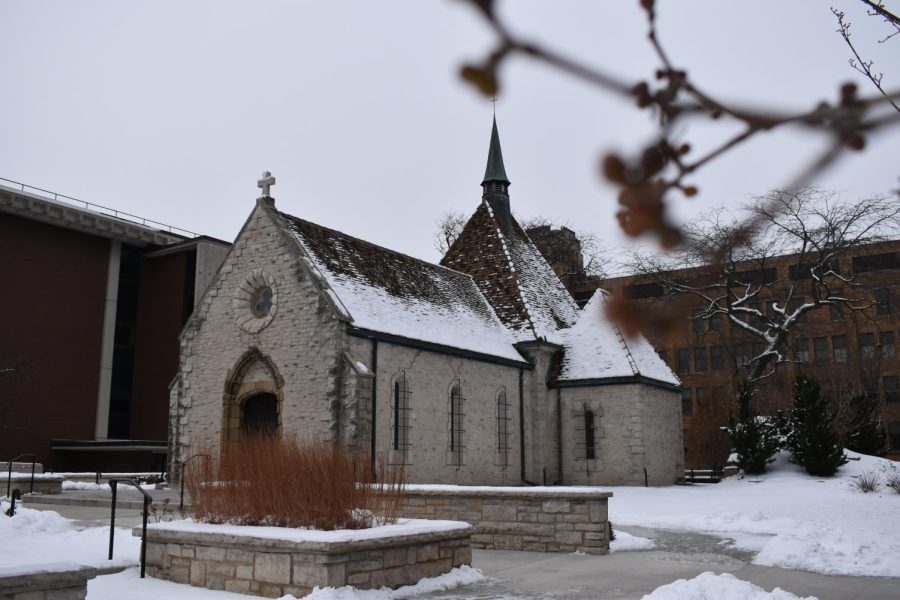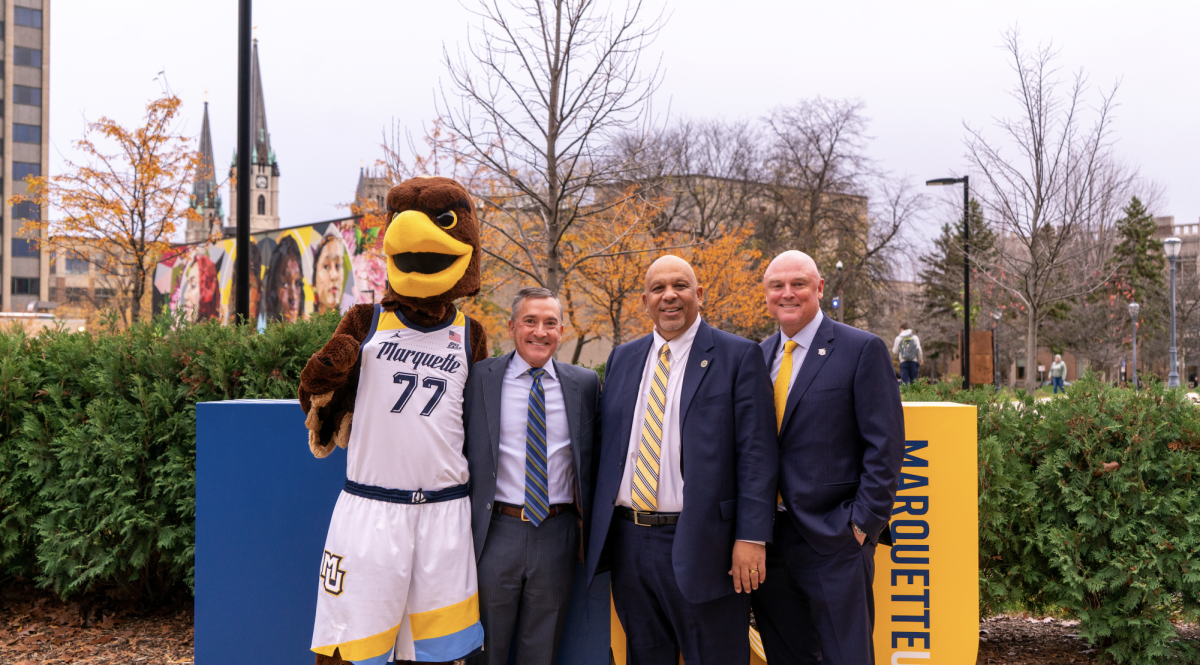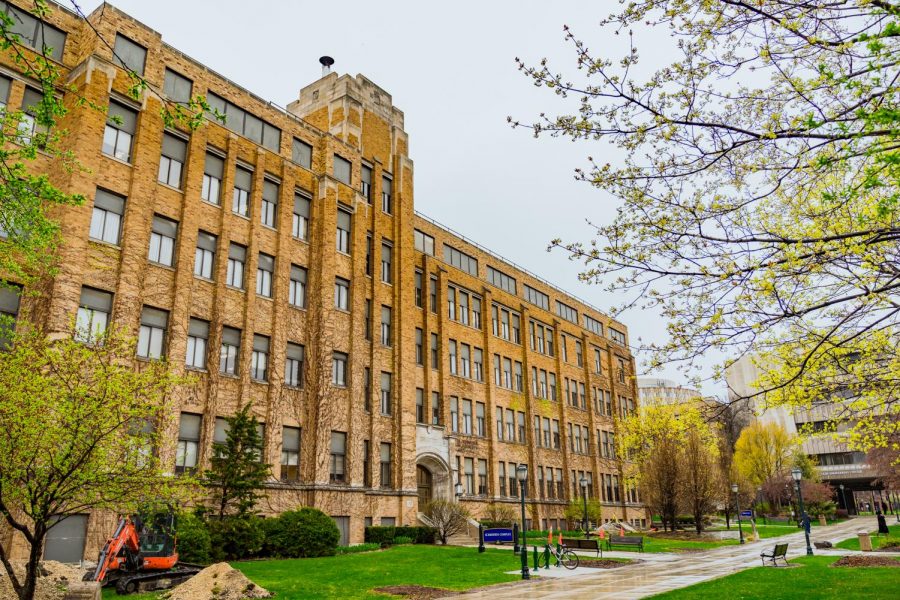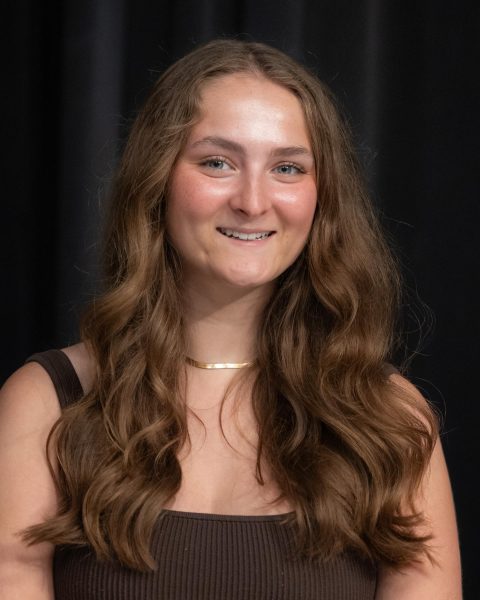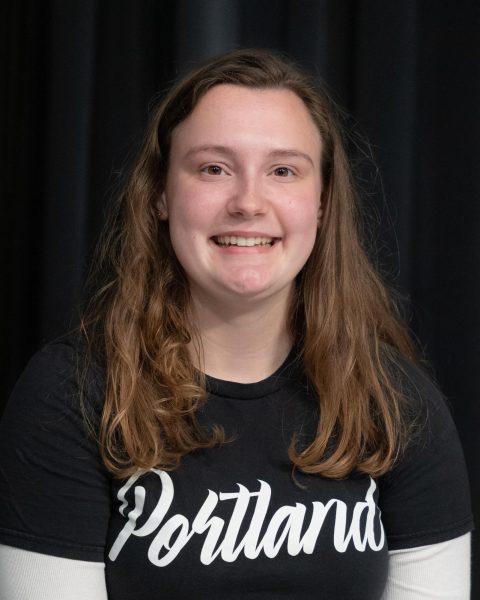Following the removal of students from their leadership positions faculty and Marquette University Student Government are looking for ways to move forward.
MUSG is undecided on how to approach those vacancies, while faculty and administration clashed over whether or not the demonstration policy promotes free speech on campus at yesterday’s University Academic Senate meeting.
“The faculty council discussed faculty concerns regarding the student conduct process in particular the role of restorative justice both in reviewing and thinking about the … Ways in which we can support students and how we might create an inclusive campus,” Amber Wichowsky, professor of political science, said in the academic senate meeting.
Despite disapproval from some members of the Marquette community, Provost Kimo Ah Yun cited the walk in support of the students sanctioned Sept. 10 as an example of how Marquette is encouraging of free speech.
“I will say the university continues to remain committed to free speech,” Ah Yun said at the academic senate meeting.
As Ah Yun was finishing his statement an audience member audibly laughed and called him a liar. There was further discussion about how the current demonstration policy requires students to get permission from Dean of Students Stephanie Quade to demonstrate, is not actually promoting free speech on campus.
As the discussion intensified, Ah Yun and the rest of the Marquette administration were called “incompetent” by some attending the meeting because they feel that Marquette’s commitment to inclusion doesn’t align with the demonstration policy. Ah Yun was also directly called out for his support of the demonstration policy.
Allison Abbott, chair of academic senate, reminded everyone that in order to have these productive conversations faculty and administrators need to speak to each other in a professional manner.
Vice President for Inclusive Excellence Chris Navia further spoke on inclusion efforts on campus. Navia mentioned that the campus climate survey indicated that often students don’t feel included in classrooms.
“I am one person among a handful of people and I cannot be in every classroom, every residence hall, every building on this campus. It takes absolutely all of us to make this place the kind of place where our students and our staff and each other, as faculty, and as colleagues can really thrive,” Navia said at the meeting.
She said she hopes to eventually sit down with the students involved and promote healing and reconciliation, though no timetable was given.
In the meantime, MUSG is currently trying to figure out how to fill the vacant positions. Last week, it sent out a survey to collect the campus community’s thoughts on how to move forward.
The options on the survey were to either have the four current E-board members split the empty roles amongst themselves until the next presidential election in the spring of 2023 or to hold a special election where people can campaign for the positions.
Amyah Brooks, a sophomore in the College of Arts & Sciences and MUSG academic senator for the college, said right now there isn’t a large difference in survey responses, so they won’t pick either option unless there’s a bigger difference in the future.
Brooks said that the non-E-board positions are currently doing more, so they’re not seeking out a new president or vice president at the moment.
“We’re trying to figure out the best way to move forward as of now,” Brooks said.
MUSG released a statement yesterday on Instagram that they are devoted to finding ways to continue supporting students’ voices on campus.
“We are proud of the job done by our previous president, vice president and legislative vice president during their historic term in the organization. With faith in our sitting MUSG members, we hope to continue the great value of equity and inclusion within our organization’s members and student body,” the statement said.
Brooks also said that this has been challenging for MUSG because it feels like they were left without a sense of direction once their leaders were removed.
“They were very much the driving force of student government and had a lot of plans for this semester, and it’s kind of hard to continue that when we have to reconstruct all of the positions almost,” Brooks said.
Sophia Medina, a junior in the College of Arts & Sciences and MUSG academic senator for the college, said that their E-board is working to fill the vacant senate positions first.
“We are focusing currently on filling 25 empty Senate seats … We will use this time between now and the spring elections to regroup, fill open senate seats and replace the vacant leadership roles with the regularly scheduled spring elections,” Medina said in an email.
Will Reames, a sophomore in the College of Communication, is the president pro tempore filling the role of legislative vice president.
Lori Martinez, a first-year in the College of Arts & Sciences and MUSG senator for Straz Tower, said this has been especially difficult for the E-board members of MUSG since they’ve had to pick up extra work.
“The [former] president and vice president before they left did a lot of hard work and they set up a good foundation for the organization, which definitely helped in this time of transition,” Martinez said. “But right now, we’re just trying to rebuild and regroup.”
Brooks said that the best thing that MUSG can do now is to try its best to move forward. She said everyone was left to figure out the best way to continue the previous leaders’ goals to promote inclusion and belonging on Marquette’s campus.
This story was written by Julia Abuzzahab and Megan Woolard. They can be reached at julianna.abuzzahb@marquette.edu and megan.woolard@marquette.edu or on Twitter @Juliaabuz and @MeganWoolard4.






